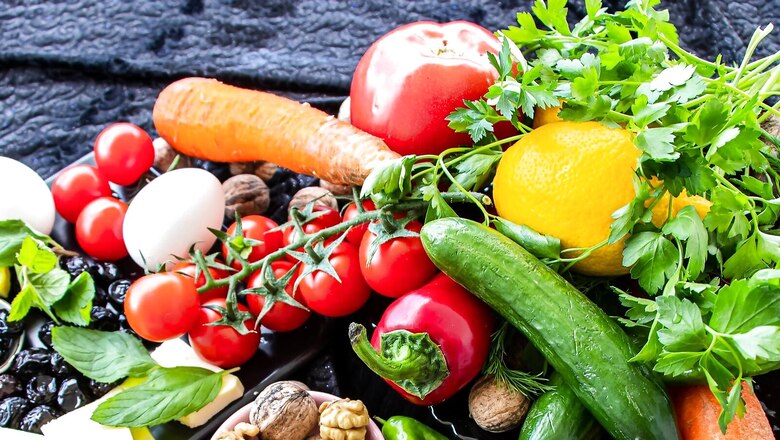
views
Even as retail inflation in March touched a 17-month-high level, the prices of key commodities remain high this month also. A majority of people said they are paying more for vegetables in April than they paid in March, according to a survey.
Over a third of the total respondents (or 37 per cent) said they are paying one-fourth more to get vegetables in April compared to the previous month, according to the survey conducted by digital community-based platform LocalCircles. The survey got 11,800 responses from citizens across 311 districts of the country.
In another survey of LocalCircles that covered 36,000 consumers spread across 359 districts in India between March 23 and April 7, one-fourth of households (24 per cent) said they have been forced to reduce their consumption of edible oils due to a sharp spike in their retail rates. About 29 per cent said they have downgraded their cooking oil to available cheaper alternatives due to the hike.
The latest Consumer Price Index (CPI)-based inflation data released recently showed that the retail inflation in March touched a 17-month high of 6.95 per cent, led by a jump in the prices of fuel and food items such as vegetables, milk, meat, and cereals.
The inflation in March jumped mainly due to rise in food items. The inflation in the food basket during the month stood at 7.68 per cent, higher as compared with 5.85 per cent in February. Core inflation, which excludes food and fuel components, also rose to a 10-month high of 6.29 per cent in March.
Food inflation increased to 7.68 per cent in March, compared with 5.85 per cent in the preceding month. The spike in the food basket was due to a sharp rise in prices of oils and fats, which climbed 18.79 per cent year-on-year in March.
The vegetable prices also witnessed an 11.64 per cent jump, meat and fish gained 9.63 per cent and spices rose 8.50 per cent. Non-alcoholic beverages rose 5.62 per cent in March, while cereals and products jumped 4.93 per cent and milk and products rose 4.71 per cent.
The recent spike in inflation is mainly attributed to the supply chain disruptions caused by the ongoing Russia-Ukraine war.
In its monetary policy announcement last week, the Reserve Bank of India (RBI) revised upwards its retail inflation forecast to 5.7 per cent for the current financial year 2022-23, compared with the 4.5 per cent projected earlier. RBI Governor Shaktikanta Das said the central bank has upped its CPI inflation projections as “heightened geopolitical tensions since end-February have upended the earlier narrative and considerably clouded the inflation outlook for the year”.
Presenting the Monetary Policy Committee‘s first bi-monthly monetary policy statement for FY23, Das said feed cost pressures could continue due to global supply shortages, which could also have a spillover impact on poultry, milk, and dairy product prices.
Read all the Latest Business News and Breaking News here



















Comments
0 comment